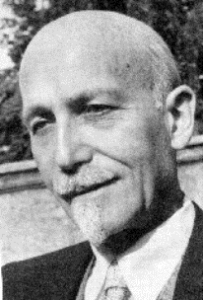Paul Brunton died in 1981, so I never met the man, but there was a period  of time in which I read a number of his books, and found them inspiring. Like the works of Ouspensky, however, I did not continue to find what I needed. I recommend reading a book or two, but don’t expect a complete philosophy. Look at Paul Brunton as a fellow researcher sharing his experiences. He had tremendous knowledge gained from years of travelling the globe and meeting spiritual teachers, yet he never found a final answer.
of time in which I read a number of his books, and found them inspiring. Like the works of Ouspensky, however, I did not continue to find what I needed. I recommend reading a book or two, but don’t expect a complete philosophy. Look at Paul Brunton as a fellow researcher sharing his experiences. He had tremendous knowledge gained from years of travelling the globe and meeting spiritual teachers, yet he never found a final answer.
Of particular interest are Paul Brunton’s notebooks which were published after his death. Brunton spent the years from 1952 until his death, writing some 7000 pages of notes in paragraph form. These his students compiled and released as the 16 volume Notebooks of Paul Brunton. Volume One, Perspectives, gives an overview of the 28 different categories which Brunton envisioned for the notebooks.
Here are two quotes from Perspectives:
We must withdraw every thing and thought from the mind except this single thought of trying to achieve the absence of what is not the Absolute. This is called Gnana Yoga: “Neti, Neti” (It is not this), as Sankara called it. And he must go on with this negative elimination until he reaches the stage where a great Void envelops him. If he can succeed in holding resolutely to this Void in sustained concentration — and he will discover it is one of the hardest things in the world to do so — he will abruptly find that it is not a mere mental abstraction but something real, not a dream but the most concrete thing in his experience. Then and then only can he declare positively, “It is This.” For he has found the Overself.
It is not the objects of conscious attention which are to be allowed to trap the mind forever and divert the man from his higher duty. It is the consciousness itself which ought to engage his interest and hold his deepest concentration.
Before beginning work on his notebooks, Brunton wrote 11 books. Of these, I found The Wisdom of the Overself the most profound. On the flip side of the coin, there is a book called My Father’s Guru by Jeffrey Moussaieff Masson. Written by the son of a former disciple, this highly critical look at Brunton portrays him as a well-meaning spiritual imposter. Masson, however, clearly has an axe to grind with the entire field of spirituality, and a great deal of psychological baggage he is trying to unload. I found it impossible to tell how much of Masson’s writing was truth, and how much was projection.
For more information on Paul Brunton, visit PaulBrunton.org
For a complete selection of Paul Brunton’s books, visit:
Larson Publications the publishers of Paul Brunton’s notebooks, and a primary source of his written works.
A scholarly article about Paul Brunton and Ramana Maharshi.

My first encounter with the so-called spiritual path was through a most fantastic book by Paul Brunton – A Search in Secret India, which in a uniquely detailed way (like no other before him) not only as the first Westerner conveyed his encounter with his to-be guru Ramana Maharshi and his teachings but Brunton had the gift of uniquely and in detail also explain how his own awakening took place through intense meditation technique near Maharshi’s feet. My view is that Paul Brunton is one of the world greatest spiritual inspirers with ability to reflect not only on the effects of an awakening but on all the details of the awakening process in a way that I do not know of any other spiritual teacher to do. I think you misunderstand him and his literature if you think he writes for a public – I think he wrote first and foremost for himself as he was very private but was certainly happy if another person would also find his work to have any meaning or bring any inspiration on the road towards an awakening. Through his literature and instructions, I experienced a brief awakening direct into the light with the following intense subsequent bliss. I´m grateful for Paul Brunton!!
I agree, his man is clearly not just a researcher. I have followed several paths/teachers and PB has taken me the furthest.